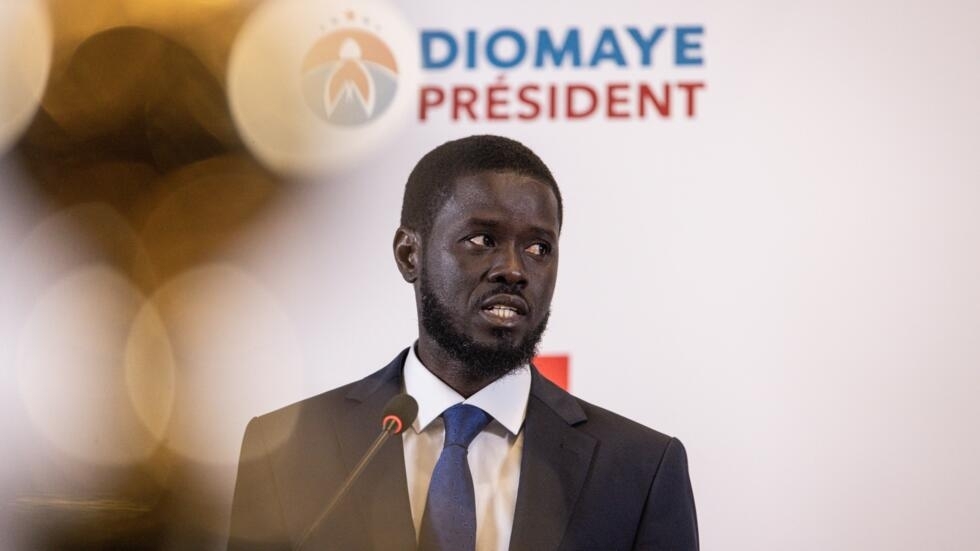Diomaye Faye has been declared the winner of Senegal’s presidential election, having received 54.28% of the votes in the first round.
According to reports from the country’s vote counting committee, which is part of the judiciary, Faye finished considerably ahead of the governing coalition’s nominee, former Prime Minister Amadou Ba, who received 35.79% of the votes.
The victory for Faye, who was just released from prison 10 days before the election, must still be certified by Senegal’s top constitutional body, which could happen in the coming days.
Faye, 44, who has stated that he seeks a “break” from the current political system, is set to become Senegal’s youngest president in history.
It would be the first occasion since France’s independence in 1960 that an opponent had won the first round.

Aliou Mamadou Dia, who finished third out of 19 candidates on the official list, received only 2.8 percent of the vote, according to numbers read in the Dakar court by Amady Diouf, president of the national vote counting commission.
While his victory in Sunday’s poll was already evident after the publishing of unofficial partial results, the vote counting committee, which is part of the judiciary, validated Faye’s margin of victory.
The turnout of 61.30 percent was lower than in 2019, when outgoing President Macky Sall won re-election in the first round, but higher than in 2012.
The publication of the official preliminary results appears to pave the path for a power transfer between Sall and his successor.
The political situation caused by Sall’s last-minute postponement of the vote, as well as the resulting rushed electoral schedule, put doubt on whether the transfer could take place before the incumbent’s tenure formally ends on April 2.
However, if no appeals are made, a quick transfer appears to be possible in the West African country, which prides itself on its stability and democratic traditions in a coup-plagued area.
Presidential candidates have 72 hours after the panel announces the results to file an appeal with the Constitutional Council.
According to the Constitution, if no appeals are filed during this time, “the Council shall immediately proclaim the final results of the ballot”
However, if a complaint is raised, the Council has five days to rule and, in theory, can cancel the election.


